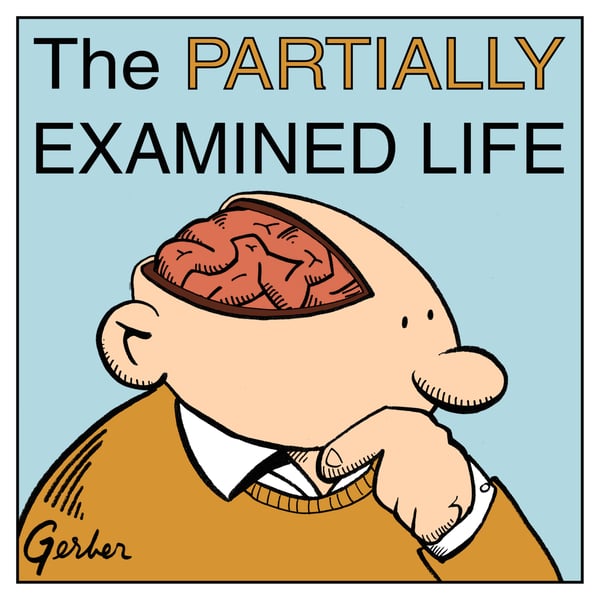Ep. 249: Dewey on Education and Thought (Part One)
The Partially Examined Life Philosophy Podcast
Mark Linsenmayer
4.6 • 2.3K Ratings
🗓️ 2 August 2020
⏱️ 49 minutes
🧾️ Download transcript
Summary
On John Dewey's How We Think (1910) ch. 1 and Democracy and Education (1916) ch. 1, 2, 4, and 24.
What model of human nature should serve as the basis for education policy? Dewey sees learning as growth, and the point of education as to enable indefinite growth. With guest Jonathan Haber.
Don't wait for part two; get the full, ad-free Citizen Edition now. Please support PEL!
Transcript
Click on a timestamp to play from that location
| 0:00.0 | Everyone at Swiss, I just wanted to give you a heads up about my new spin-off podcast |
| 0:03.6 | Subtext, which will be launching in mid-August. In it, Poet Aaron Alonig and I explored the |
| 0:07.8 | human condition by conducting a close reading of a text or film and co-writing an audio essay |
| 0:12.4 | about it in real time. For a while, new episodes will appear in the P.E.L. feed, |
| 0:15.9 | but if you like it, you should subscribe to us directly by searching for us on the podcast |
| 0:19.7 | app of your choice. You'll also find us at subtextpodcast.com. |
| 0:31.6 | You're listening to the partially examined life, a podcast by some guys who at one point |
| 0:35.2 | said I'm doing philosophy for a living but then thought better of it. Our question for episode |
| 0:39.1 | 249 is what model of human nature should serve as the basis for education policy? Our texts for |
| 0:45.9 | today are by John Dewey, Democracy and Education from 1916, chapters 1, 2, 4 and 24, |
| 0:52.4 | and how we think from 1910 to 1. For more information and links to these texts, |
| 0:57.6 | please visit partiallyexaminelife.com. This is Mark Linton-Mire, |
| 1:01.5 | turning the forces buffeting me into delicious vegetarian chili in Madison, Wisconsin. |
| 1:07.1 | This is Seth Pascon, transmitting but not indoctrinating culture from Austin, Texas. |
| 1:12.3 | This is Wes Allen, respecting my inner child in Cambridge, Massachusetts. |
| 1:17.1 | This is Dylan Casey extending the memory of the word problem to anything that |
| 1:20.7 | proplexes and challenges my mind in Madison, Wisconsin. And this is Jonathan Haber trying to |
| 1:26.8 | not think unproductively from Lexington, Massachusetts. Welcome Jonathan. |
| 1:31.2 | Hi, Jonathan. Thanks. It's a pleasure and honor to be here. Tell us how you got on the show. |
| 1:36.2 | Well, I actually reached out to you guys a few years ago. I was doing a public educational |
| 1:42.5 | research project on massive open online courses and took 32 free courses in 12 months. So it's |
| 1:50.7 | called a degree of freedom project. And that was designed to see if these free massive courses |
... |
Please login to see the full transcript.
Disclaimer: The podcast and artwork embedded on this page are from Mark Linsenmayer, and are the property of its owner and not affiliated with or endorsed by Tapesearch.
Generated transcripts are the property of Mark Linsenmayer and are distributed freely under the Fair Use doctrine. Transcripts generated by Tapesearch are not guaranteed to be accurate.
Copyright © Tapesearch 2025.

